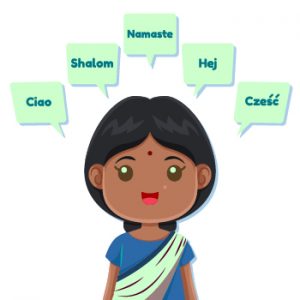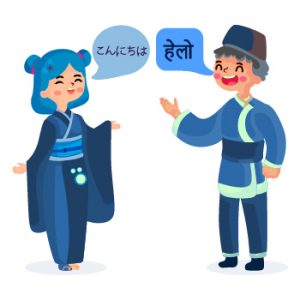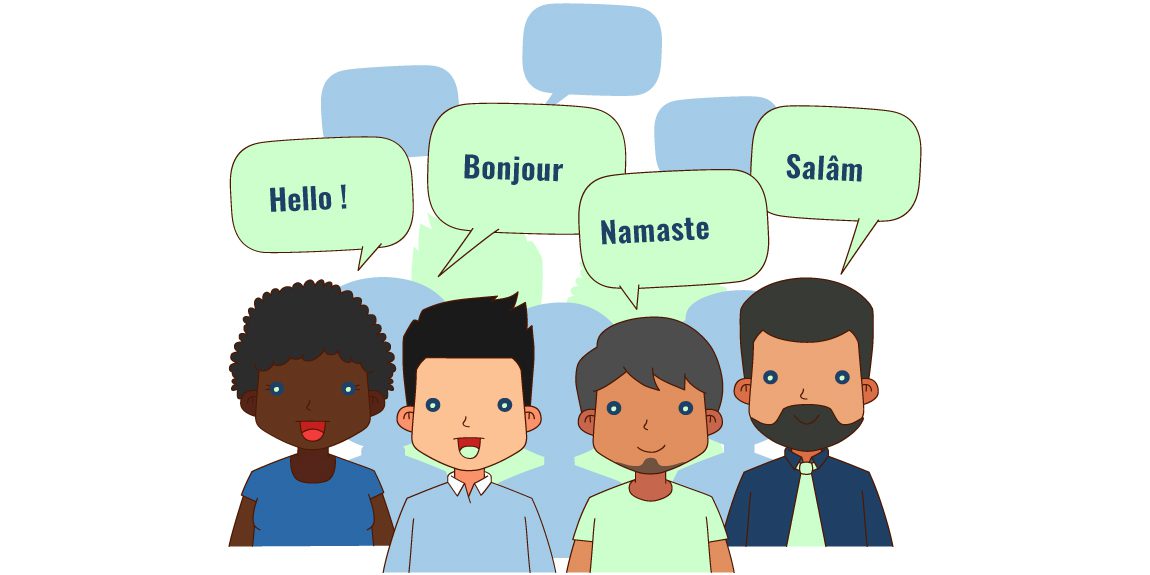Bengali
With an estimated 205 million native speakers, Bengali is the 6th most spoken language in the world (behind Mandarin, Spanish, English, Hindi, and Arabic).
In addition to being one of the official languages of Bangladesh and India, Bengali is also spoken by some in Bhutan, Nepal, and Sri Lanka. That’s quite an impressive resume!
As such, it’s important to find a Bengali interpreter that can help you navigate any situation where you may need assistance communicating in Bengali.
Who is a Bengali Interpreter?
A Bengali interpreter is an individual who has proficiency in two languages and can facilitate communication between these two different languages. The word Bengali is an English word used to refer to the language spoken by those of Bangladeshi ancestry.
The interpreter is expected to be well-versed in both the source and target languages, as well as possess excellent listening skills and strong interpersonal skills. Individuals who have knowledge of technical terminology from other fields will be more desirable candidates for many assignments.
These individuals also need to understand specific content areas in order to provide successful interpretations or translations when requested. It is recommended that you contact College graduate Experience if you need assistance with interpretation or translation services.


Types of Bengali Interpreters
1. Deposition interpreter
Provides English-Bengali interpretation in the United States, Canada, the Caribbean, and India. Typically works from a company’s office and is used to work with international business partners, judicial systems, and agencies to share information.
2. Network of interpreters
Provides bilingual translation of court cases into various languages throughout the world and offers professional services at competitive rates.
3. Freelance interpreters
Translate documents on demand and may be hired to interpret in other settings.
4. Interpreters for businesses
Often work on behalf of specific companies such as airlines or manufacturers who need interpreting services when they are doing business abroad.
5. Interpretation Service Providers (ISP)s
The ISP has a team of multilingual professionals that can provide assistance in over 200 different languages. They also have offices all over the globe, so it would be easy to find one near you.
Fees of Bengali Interpreters
Bengali-English interpreters will likely come with different fee structures, which can be attributed to three things: academic experience, foreign speakers, and oral interpretation.
Academic experience is important because it can translate into more opportunities to interpret. There are differences in both the quality and the fee associated with an interpreter’s foreign language experience.
Experienced interpreters can interpret professionally even if they have never been exposed to the spoken language of their clients. Oral interpretation is also important because this type of interpretation requires greater skills. A degree in interpretation is typically necessary to become an oral interpreter.
Professional interpreters who work from home on a contract or freelance basis charge higher rates than those who work full-time as public employees.
Fees may vary depending on whether or not you have set up a network of qualified Bengali-English interpreters or need someone on short notice to work at your company location.

Five Helpful Tips for requesting Bengali Interpreters
Finding a professional, trustworthy interpreter is no easy task. There are many things to keep in mind before you ask someone to translate and interpret at your event or meeting. Here are five helpful tips to help you find the right person:
1. Do your research
In order to find the best person, know who they are beforehand and where they come from.
2. Be flexible
Communicate your expectations, timeline, and budget requirements upfront so that both you and the interpreter can plan accordingly.
3. Share scripts
If you’re looking for somebody to provide consecutive interpretation, it’s vital that this person have a copy of the script ahead of time.
The interpreters will also need to see any charts, graphs, or other visual aids that may be included during the meeting. They will then be able to prepare themselves for what’s about to happen.
4. Hire an experienced Bengali-English interpreter
You want an experienced English-Bengali translator because sometimes even native speakers may not understand words like chotto which means a little bit. Hiring a good bilingual speaker means they’ll have less difficulty interpreting terms like these.
5. Review references
To ensure professionalism, check references before you hire them. Find out if the people giving references are reliable and if they really speak fluent English and Bengali. Make sure there are written testimonials as well as recordings of their work with other clients available online.

Where to request a Bengali interpreter?
There are many places where you can get a Bengali-English interpreter. You can look on the internet and find organizations that offer different types of contract workers such as interpreters.
Some local hospitals also have interpreters that they offer to patients or their families who need help understanding what is being said during doctor visits. You might want to ask around in your community and see if there are any organizations dedicated to assisting immigrant populations.
If not, reach out to an organization like Red Cross and tell them about your needs so they can refer you to someone in the area who specializes in this type of work. It may be easier to request the services of a bilingual person from within your own cultural group.
Reach out to friends, relatives, etc., who speak both languages and see if they could assist you with this process. In many cases, these people would be willing to do it without any monetary compensation as long as they’re given recognition for helping others within their own culture.
FAQ’S
If you are looking for someone to provide interpretation services, there are many reputable interpreters out there. MSA Language Services is one example of a translation agency that offers translation and interpreting services in over 100 languages and dialects including Bangla.
There are many traits that may be characteristic of a bilingual (Bengali and English) interpreter, such as fluency in both languages and being well-versed in the customs and traditions of the cultures they are interpreting between.
First, you will need to be fluent in both English and Bengali. You will also need to pass any required exams and gain certification as an interpreter.








